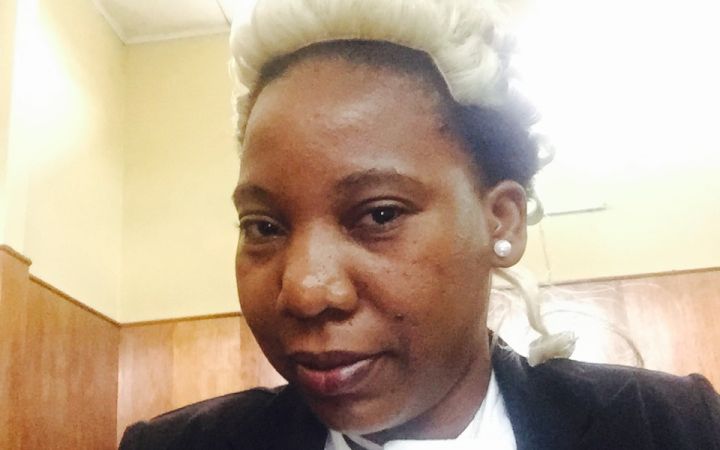Name: Fatuma Silungwe
Organization: UNDP
Functional Title: Legal expert for the Malawi Electoral Cycle Support Project
Country: Malawi
Course participated in: Online Master’s in Electoral Policy and Administration Programme (MEPA)
“When you are working full-time and simultaneously trying to advance your qualifications, time is always a challenge”, says Ms. Fatuma Silungwe, a legal analyst at UNDP, Malawi Electoral Cycle Support Project, and a former expert in post-election dispute resolution in the Malawi Ministry of Justice. “Sometimes, the pressure of daily work is just too high and you feel really exhausted,” she continues, “So, a flexible study plan is essential in this case.”
Ms. Silungwe, based in Blantyre, Malawi, represents local staff in the international team of experts that works in close collaboration with the Malawi Electoral Commission on reforming the country’s electoral system. Holder of an Honours Bachelor’s Degree in Law, a Master’s Degree in Transnational Criminal Justice and Crime Prevention and a Doctorate in International Criminal Law, Ms. Silungwe, at the time she joined UNDP two years ago, realized that she still needed to expand her knowledge specifically in the area of elections. “With the start of the reform process, I have discovered that elections were about much more than just dispute resolution, which I had been previously concentrating on, and becoming part of it required from me now a thorough understanding of the whole electoral framework,” – she explains.
These considerations encouraged Ms. Silungwe to enrol in the online Master’s in Electoral Policy and Administration programme (MEPA), a degree developed jointly by UNITAR, Scuola Superiore Sant’Anna in Italy, and the International Institute for Democracy and Electoral Assistance (IDEA). MEPA forms part of a broader initiative of UNITAR and his partner educational institutions to promote sustainable peace in communities around the globe. The degree programme is targeted at mid- to upper-level professionals, like Ms. Silungwe, in order to provide them with skills needed to effectively assume specific roles in the area of electoral policy and administration. The one-year programme is mainly delivered online with a short optional in-person component in Pisa, Italy, which students undertake while writing their final thesis.
For Ms. Silungwe, online learning is not something entirely new, as she has already obtained a three-month Postgraduate Certificate in Legislative Drafting using the same mode of delivery. Yet, she notes, acquiring a full official degree without any necessity to travel or even to be present in class is a rather specific experience.
“Since studying is challenging for a full-time employee like me in terms of both time and energy, it needs to be truly rewarding to maintain your motivation. Being a MEPA student is very rewarding in this sense because the programme is designed in a way to be directly applicable to the work of an elections professional. I learn and test my new knowledge in real time, and see the results.”
And the results are not long in coming. Having recently completed the online portion of the MEPA degree, Ms. Silungwe already feels more confident while providing policy guidance related to various aspects of the ongoing electoral system reform. For example, she relied on the newly obtained knowledge to analyze the problems of political party funding – a topical issue for many young democracies, which, like Malawi, do not have a long tradition of multi-party elections. Reflecting further on overcoming the difficulties of combining the roles of a student and a practicing professional, Ms. Silungwe admits that, “of course, it remains tough. But when it is so much applied and integrated into your work, it is much more manageable.”
Focused and concrete, the MEPA curriculum still remains comprehensive enough to present learners with diverse perspectives and to equip them with transversal skills that would be applicable to a wide range of contexts, communities and political systems. In the case of Ms. Silungwe, she believes that she has truly expanded her career and outreach opportunities by taking this course.
“I have always been working at a local level, but I would like to make a contribution at an international one as well. MEPA has definitely helped me broaden my horizon and enabled me to provide a competent advise on elections for any other country apart from Malawi".
In addition to the distance mode of delivery, MEPA offers flexible procedures of subscription and tuition fee payments. The applications are accepted on a rolling basis throughout the year, and students can start at any time within one year after their admission.


